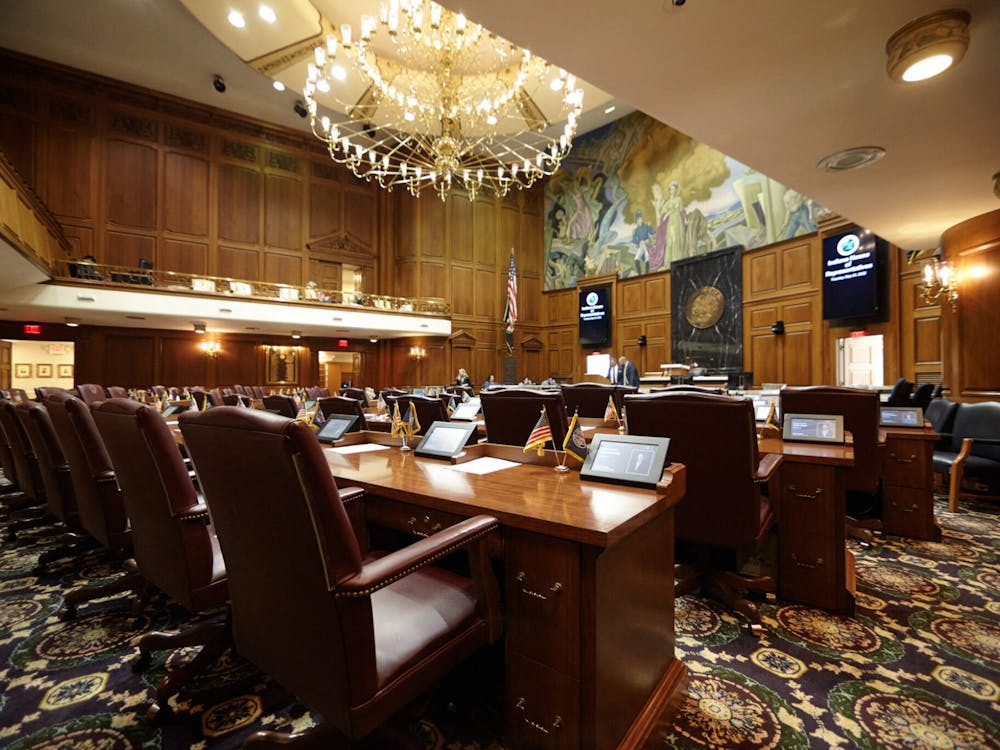NEW YORK (AP) — A judge rejected a deal between Google and the book industry Tuesday that would have put millions of volumes online, citing anti-trust concerns while acknowledging the potential benefit of putting literature in front of the masses.
U.S. Circuit Judge Denny Chin in Manhattan said the creation of a universal library would "simply go too far." Still, he left the door open for an eventual deal, noting that many objectors would drop their complaints if Google set it up so book owners would choose to join the library rather than being required to quit it.
The $125 million settlement that had drawn hundreds of objections from Google rivals, consumer watchdogs, academic experts, literary agents and even foreign governments. Google has already scanned more than 15 million books for the project.
Hilary Ware, Google's managing counsel, called the decision disappointing and said the company was considering its options.
"Like many others, we believe this agreement has the potential to open up access to millions of books that are currently hard to find in the U.S. today," Ware said in a statement. "Regardless of the outcome, we'll continue to work to make more of the world's books discoverable online through Google Books and Google eBooks."
Chin said the settlement that the company reached with U.S. authors and publishers would "grant Google significant rights to exploit entire books, without permission of the copyright owners." He was particularly critical of the access Google would have to so-called "orphan works" — out-of-print books whose writers could not be located — saying the deal gave the company "a de facto monopoly over unclaimed works."
That was one of the fears raised in 2009 by the Justice Department when it concluded that the agreement probably violated antitrust law and could decrease competition among U.S. publishers and drive up prices for consumers if Google gained a monopoly on out-of-print books.
The deal gives Google "a significant advantage over competitors, rewarding it for engaging in wholesale copying of copyrighted works without permission," Chin said.
Authors Guild President Scott Turow said the organization planned to talk with publishers and Google "with the hope that we can arrive at a settlement within the court's parameters that makes sense for all parties."
He said the online library was "an idea whose time has come." He added: "Readers want access to these unavailable works, and authors need every market they can get. There has to be a way to make this happen. It's a top priority for the Authors Guild."
John Sargent, chief executive officers at Macmillan Publishers Limited, noted in a statement on behalf of publisher plaintiffs that the judge had invited the parties to request approval of a revised deal if they can reach one. He said the publishers were prepared to modify the deal and work to overcome Chin's objections.
He said the publishers wanted to "promote the fundamental principle behind our lawsuit, that copyrighted content cannot be used without the permission of the owner, or outside the law."
The Open Book Alliance, a group that includes Google rivals Microsoft Corp., Yahoo Inc. and Amazon.com Inc., called the ruling "a victory for the public interest and for competition in the literary and Internet ecosystems."
Attorney Cynthia Arato, representing a number of leading foreign publishing societies and foreign book publishers who objected to the settlement, said it vindicates the important concerns of foreign rights holders.
"Their interests weren't adequately protected," she said. "It would be wrong for a U.S. court to allow one company to usurp their fundamental right to control their copyrighted works."
The judge acknowledged in his decision that there are many benefits to Google's project, including that libraries, schools, researchers and disadvantaged populations would gain access to far more books; that authors and publishers would find new audiences and new sources of income; and that older books — particularly those out of print — would be preserved and given new life.
The case developed after Google in 2004 announced it had agreed with several major research libraries to digitally copy books and other writings in their collections. The authors and publishers sought financial damages and a court order to block the copying when they sued Google in 2005 after Google failed to obtain copyright permission to scan the books.
A deal was first reached to settle the claims in 2008 and was tentatively approved by Chin in November 2009.
Since presiding over a hearing on the case in February 2010, Chin has been elevated to the 2nd U.S. Circuit Court of Appeals. He acted in the role of a district judge to rule on the case.
At the hearing last year, Chin heard a lawyer for folk singer Arlo Guthrie and "Pay it Forward" writer Catherine Ryan Hyde say the library would exploit his clients with "woefully inadequate compensation" for "unknown and undisclosed uses." Microsoft lawyer Tom Rubin said the deal "was structured to solidify Google's dominance."
Neither lawyer immediately returned requests seeking comment Tuesday.
Google lawyer Daralyn Durie testified at the hearing that fewer than 10 million books of 174 million books in the world would be affected by the settlement, and that 5 million of those affected were out of print. Google has estimated that about 130 million titles would likely get into its digital library.




